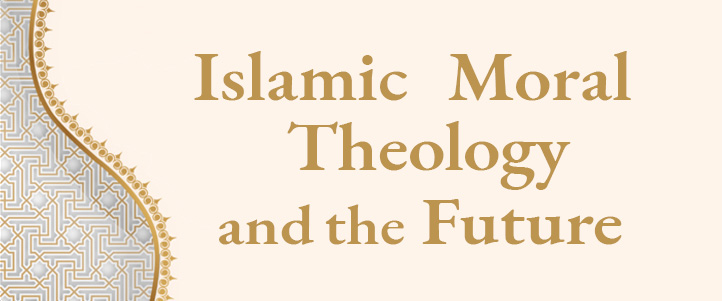IMTF Project Co-Leads
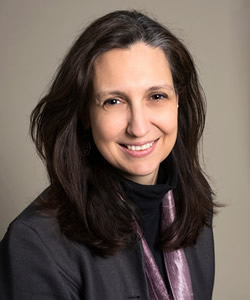
Maria M. Dakake
Associate Professor of Religious Studies, Interim Director,
AbuSulayman Center for Global Islamic Studies
George Mason University
Maria Dakake is Associate Professor of Religion at George Mason University. Dr. Dakake researches and publishes on Islamic intellectual history, Quranic studies, Shi`ite and Sufi traditions, and women’s spirituality and religious experience. She is one of the general editors and contributing authors of the The Study Quran (HarperOne, 2015), which comprises a translation and verse-by-verse commentary on the Qur’anic text that draws on the rich and varied tradition of Muslim commentary. Her most recent publication, The Routledge Companion to the Qur’an (2021), is a co-edited volume with 40 articles on the Qur’an written by contemporary scholars working from different methodological perspectives. She is currently completing a monograph, Toward an Islamic Theory of Religion, and working on a selective translation of the Qur’an commentary written by the 20th century Iranian female scholar, Nusrat Amin.
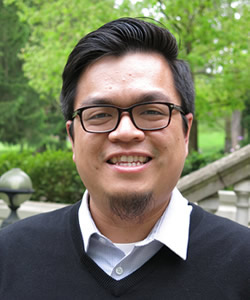
Martin Nguyen
Professor of Islamic Studies,
Chair of the Religious Studies Department
Fairfield University in Connecticut
Martin Nguyen is a professor of Islamic studies and chair of the Religious Studies Department at Fairfield University in Connecticut. His scholarship revolves around Muslim theology, ethics, spirituality, Quranic studies, the intersection of race and religion, theological responses to global mass displacement, and modern structural racism. His publications include Modern Muslim Theology: Engaging God and the World with Faith and Imagination (2019) and Sufi Master and Qur’an Scholar: Abū’l-Qāsim al-Qushayrī and the Laṭāʾif al-ishārāt (2012). He also worked with the late Sohaib Sultan, Princeton University’s first Muslim chaplain, to revise and expand An American Muslim Guide to the Art and Life of Preaching (2023). Additionally, he is co-leading several initiatives and seminars, including Constructive Muslim Thought and Engaged Scholarship and the Islamic Moral Theology in Conversation with Future. Nguyen holds a joint-program Ph.D. in Middle Eastern studies and history from Harvard University.
Contributors
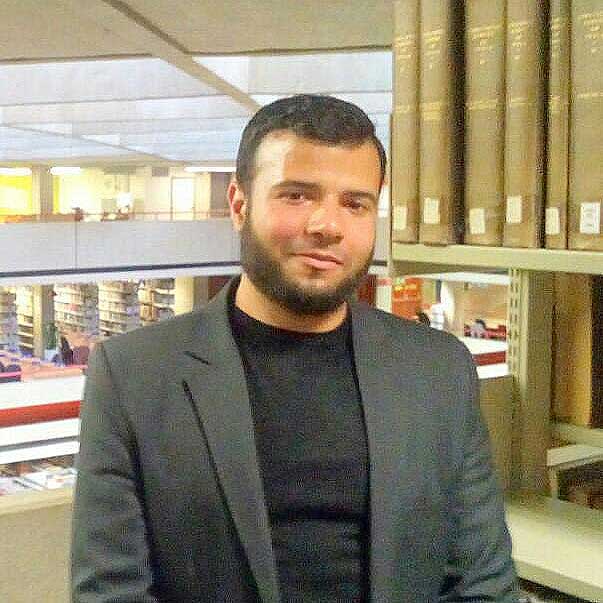
Mohamed Gamal Abdelnour
Dr Mohamed Gamal Abdelnour is a faculty member at Al-Azhar University (Cairo) and a research fellow at the University of Bristol, U.K. He holds an MA in Catholic Theology (Durham University, U.K.) and a PhD in Comparative Religion (SOAS University of London). He is the author of The Higher Objectives of Islamic Theology (Oxford University Press, 2022) and a co-author of Science and Civilization between Islam and Christianity (2024).
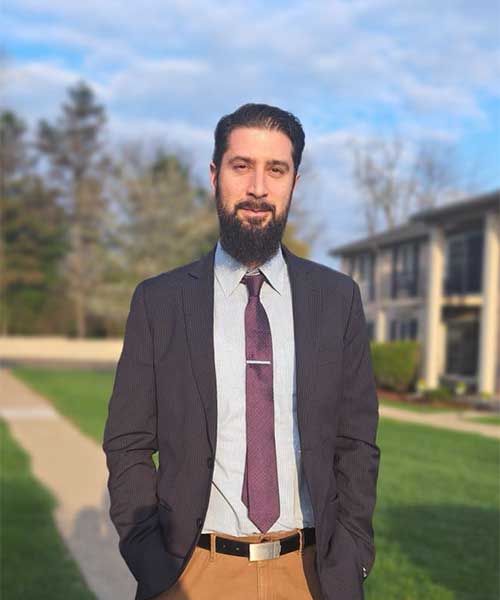
Sami Al-Daghistani
Sami Al-Daghistani is an Associate Professor (Docent) in Contemporary Islamic Studies at Lund University, an Associate Faculty Member at the Brooklyn Institute for Social Research (BISR) in New York City, and a Research Scholar at the Middle East Institute (MEI) at Columbia University in New York (both since 2019). His research is situated at the intersection of Islamic economics, environment, ethics, and law in Islamic intellectual history and in the contemporary period. He is the author of Abū Ḥāmid al-Ghazālī’s Ethical Teachings: Economics of Happiness (Anthem Press, 2021), the award-wining The Making of Islamic Economic Thought: Islamization, Law, and Moral Discourses (Cambridge University Press, 2022), and Islam in ljubezen (Beletrina: Ljubljana, 2023), as well as a co-editor of Pluralism in Emergenc(i)es in the Middle East and North Africa (Review of Middle East Studies, 2021), and the editor of Recovering Environmental and Economic Traditions in the Islamic World (Brill, forthcoming 2024). In 2021, he launched an interdisciplinary research group and consortium Critical Islamic Studies, whose aims are to engage with both historical and modern analysis of and research in the field of Islamic Studies, and to seek external funding opportunities and collaboration.
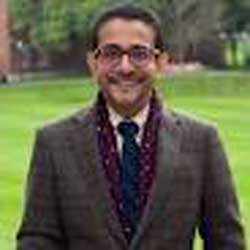
Ismail Alatas
Ismail Fajrie Alatas is associate professor of Middle Eastern and Islamic Studies, and History at New York University and an associate editor of the Journal of the Royal Asiatic Society. He is the author of What is Religious Authority? Cultivating Islamic communities in Indonesia (Princeton University Press, 2021). His research explores the intersections of religious authority and social formation, spatiality and mobility, semiotics and communicative practice with a focus on Southeast Asia and its historical and contemporary connection to the Middle East.
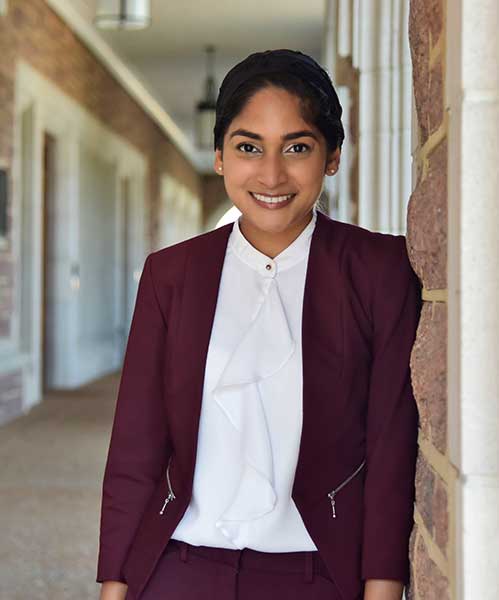
Tazeen Ali
Tazeen M. Ali is a scholar of Islam and gender in the United States and assistant professor at the John C. Danforth Center on Religion and Politics at Washington University in St. Louis. Her research and teaching focus on U.S. Islam, Islam and popular culture, and race and religion. She is the author of The Women’s Mosque of America: Authority & Community in US Islam (NYU Press, 2022). She earned her PhD in Religious Studies from Boston University in 2019.
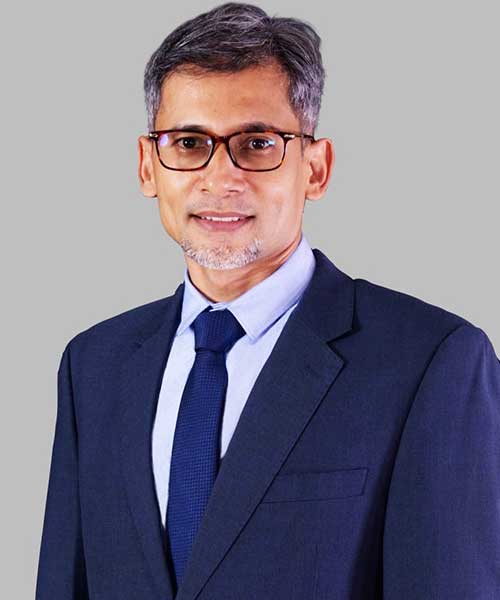
Khairudin Aljunied
Khairudin Aljunied (PhD SOAS, London) is Associate Professor at the National University of Singapore. He is concurrently a Senior Fellow (formerly and Professor as well as Malaysia Chair of Islam in Southeast Asia at the Alwaleed Centre for Muslim-Christian Understanding, Georgetown University). He has held visiting full professorships at Columbia University, USA (Fulbright Program) in 2013, University of Brunei Darussalam in 2021-2022 and the University of Malaya in 2022-2023. In 2024, he is listed as one of the 500 influential Muslims in the world in 2024: https://themuslim500.com A recognized specialist in the field of intellectual history, Khairudin Aljunied’s research focuses on the connections between Southeast Asia and Global Islam. He is the author and editor of thirteen books and more than thirty internationally refereed articles. Recent publications include Muslim Cosmopolitanism: Southeast Asian Islam in Comparative Perspective (Edinburgh University Press, 2017), Hamka and Islam: Cosmopolitan Reform in the Malay World (Cornell University Press, 2018), Islam in Malaysia: An Entwined History (Oxford University Press, 2019), and Shapers of Islam in Southeast Asia (New York: Oxford University Press, 2022). His upcoming book is entitled Contemplating Sufism: Dialogue and Tradition Across Southeast Asia (Oxford: Wiley-Blackwell, 2024).
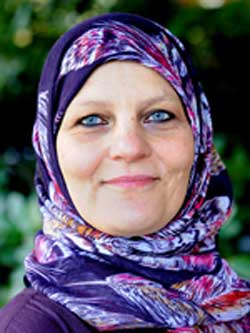
Nora Eggen
Nora S. Eggen holds a PhD in Arabic and Islamic Studies and is currently affiliated with the University of Oslo, Norway. Her research interests include premodern intellectual history, Qurʾanic studies, translation studies, ethics, and the history of Islamic Studies in the Scandinavian countries. Among her recent publications are: “The Ambiguous jār: Towards a Qurʾanic Neighborhood Ethics.” In The Ambiguous Figure of the Neighbor in Jewish, Christian, and Islamic Texts and Receptions (Routledge, 2021); “Trust, trusting and trustworthiness in ethical discourse,“ Journal of Islamic Ethics (2021); “al-Qadi ʿIyad’s Defence of the Prophet and of scholarly tradition: al-Shifāʾ,” in Freedom of Expression in Islam: Challenging Apostasy and Blasphemy Laws (Tauris, 2021); “On the Periphery: Translations of the Qurʾān in Sweden, Denmark and Norway.” In Routledge Handbook of Arabic Translation (Routledge, 2019).
Maryam Eskandari
Maryam Eskandari is a designer (architect) and an educator. In 2013, she founded MIIM Designs, a practice dedicated to community engagement, interdisciplinary collaboration and design innovation through the use of local and traditional materials. Under her leadership, MIIM has been a two-time recipient of the National Endowment for the Arts Award, the Doris Duke Foundation Award, National Endowment for the Humanities and the Institute of Library and Museums. Maryam is the 2009-2011 recipient of the Aga Khan Program in Islamic Architecture Award. In 2014 Maryam was a recipient for the Women Entrepreneur Award at the White House under President Barack Obama; the recipient of the 2016 Cambridge Judge Business School Rothschild Prize, and the recipient of the 2005 J. Douglas Mac Neil Architecture Memorial Prize. Maryam received her masters in from Massachusetts Institute of Technology (MIT) School of Architecture and Planning, while doing extensive work on restoration and heritage preservation on Homayoun’s’ Tomb in India and researching in history and theory on mosques. Maryam was the founding Board of Open Architecture Collaborative – a non-profit working in underserved communities and the Harvard Iranian Alumni Association, and currently a Board member of Harvard’s FDR Foundation, CleanAcwa in Accra Ghana, and the 1947 Partition Archives of India. She has taught at Boston Architectural College (BAC), Harvard University, and currently, is the Nature’s Conservancy (TNC) Capstone Thesis Professor at Cal Poly (Pomona).
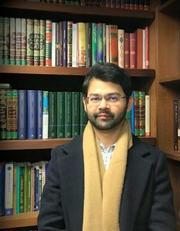
Muhammad U. Faruque
Muhammad U. Faruque is Inayat Malik Associate Professor and a Taft Center Fellow at the University of Cincinnati. He earned his PhD (with distinction) from the University of California, Berkeley, and served as Exchange Scholar at Harvard University and as George Ames Postdoctoral Fellow at Fordham University. His highly acclaimed book Sculpting the Self (University of Michigan Press, 2021) addresses “what it means to be human” in a secular, post-Enlightenment world by exploring notions of selfhood and subjectivity in Islamic and non-Islamic literatures, including modern philosophy and neuroscience. Dr. Faruque is the author of three books and over forty academic articles, which have appeared (or are forthcoming) in numerous peer-reviewed journals such as Philosophy East and West, Arabic Sciences and Philosophy (Cambridge), Brill Journal of Sufi Studies, Religious Studies (Cambridge), Brill Journal of Islamic Ethics, and Ancient Philosophy. He has delivered lectures in many North American, European, Asian, and Middle Eastern universities. He gives public lectures on a wide range of topics such as climate change, AI, subjectivity, and meditation. He is also a recipient of numerous awards, grants, and fellowships, including the prestigious Templeton Foundation Global Philosophy of Religion grant and the Title IV Grant, U.S. Dept. of Education.
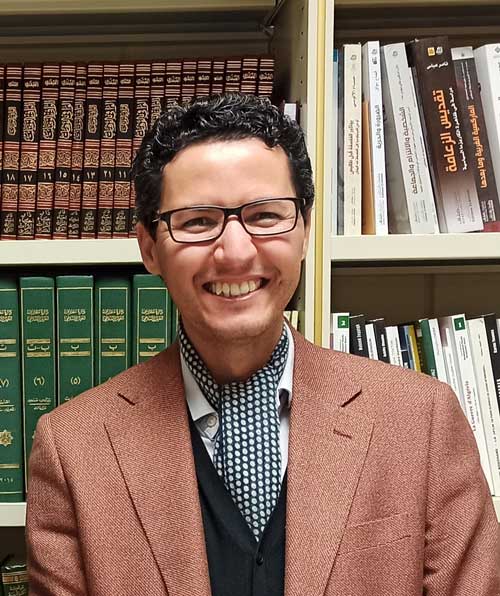
Mohammed Hashas
Mohammed Hashas [“Ḥaṣḥāṣ”] (PhD, Habil.) is Assistant Professor in the History Department at Tor Vergata University of Rome. He is also Lecturer in the Department of Political Science of Luiss University of Rome, and a Research Fellow affiliate to Zentrum Moderner Orient (ZMO) in Berlin. His research areas are modern intellectual history of the Arab-Islamic world, Islamic thought in Europe, contemporary Moroccan thought, and religion and politics in the Arab world. Hashas has been a visiting research fellow in Copenhagen, Tilburg, Berlin, Oxford, and non-resident fellow in Winchester in Virginia. Hashas published The Idea of European Islam (2019), Intercultural Geopoetics (2017), and edited Pluralism in Islamic Contexts (2021), Islamic Ethics and the Trusteeship Paradigm: Taha Abderrahmane’s Philosophy in Comparative Perspectives (2020), Islam, State and Modernity: Mohammed Abed al-Jabri and the Future of the Arab World (2018), Imams in Western Europe (2018), besides various journal articles and book chapters. His new edited volume Contemporary Moroccan Thought: On Philosophy, Theology, Society, and Culture (November 2024) is the first comprehensive work on Moroccan intellectual history. Hashas contributes opinion essays in Arabic and English on contemporary Arab and Islamic thought (which are also archived at his private website: www.mohammedhashas.com).
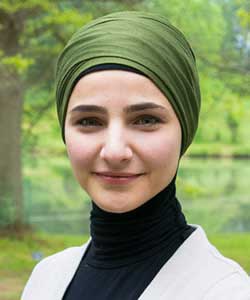
Tuba Işik
Tuba Işik is a professor of Islamic education and practical theology in the Berlin Institute of Islamic Theology at Humboldt University in Berlin. Her research interests include religious education and its pedagogy, virtue ethics, Muslim women, and comparative theology. Işik is the author of Systematic and Historical Reflections on the Meaning of the Prophet Muḥammad for Religious Education (2015) and a monograph on character cultivation from a philosophical point of view (forthcoming, 2022). She is a co-editor of the first textbook in German on the didactics of Islamic religious education (2022). Işik holds a master’s degree in international public law and pedagogy from Georg-August University of Göttingen (Germany) and a Ph.D. from the University of Paderborn, Germany. She also studied Catholic theology in Paderborn and Rome and received further education in Islamic education at the University of Osnabrück and the Ilahiyat Faculties of Bursa and Ankara in Turkey.
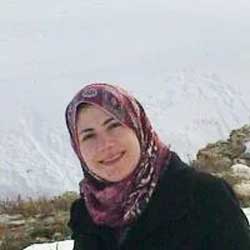
Katrin Jomaa
Dr. Katrin Jomaa’s interdisciplinary research interests encompass classical and modern political philosophy, as well as Islamic thought and Qur’anic exegesis, specially focusing on the relationship between religion and politics in the Middle East. Her research method employs analysis of Islamic primary sources to explore key concepts which could be utilized in constructing modern Islamic political theory. In 2013, Dr. Jomaa joined the University of Rhode Island as an Assistant Professor with a joint appointment in the Departments of Political Science and Philosophy. Besides her interest in the field of humanities, Dr. Jomaa has a dual passion for science and technology. She has a Bachelors degree in Mechanical Engineering at the American University in Cairo and a Masters degree in Applied Materials Science at the University of North Carolina-Chapel Hill. Her scientific background has informed her study of religion and politics as she employs structural analysis to the understanding of religious texts and political events.
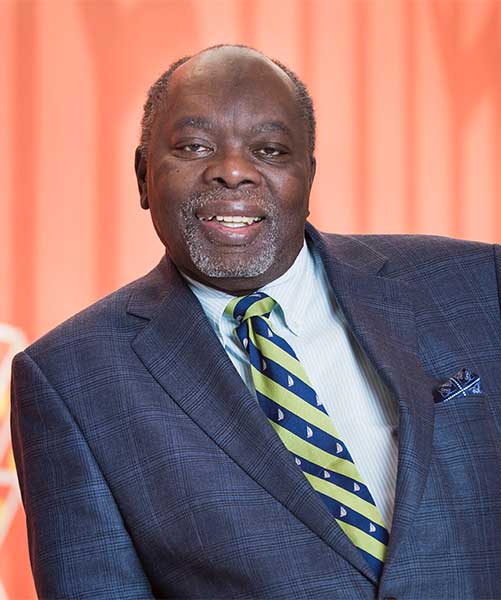
Akel Kahera
Akel Ismail Kahera Ph.D., is a Professor of Islamic Architecture and Urbanism at Hamad Bin Khalifa University, Doha, Qatar, and a member of the board of trustees of The International Network For Traditional Building and Urbanism (INTBAU). Dr. Kahera is an architect/urbanist and design critic with over twenty-five years of experience in the MENA region and the United States. He graduated from Pratt Institute’s School of Architecture and later completed graduate studies at Massachusetts Institute of Technology and Princeton University, and has published over three dozen peer-reviewed academic papers, book chapters, encyclopedia entries, and four books: The Place of the Mosque: Genealogies of Space, Knowledge and Power (Rowan & Littlefield/ Lexington Press 2022) Reading the Islamic City: Discursive Practices & Legal Judgment (Rowan & Littlefield/ Lexington Press, Maryland; 2012), Deconstructing the American Mosque : Space, Gender and Aesthetics (University of Texas Press, 2002/2008), and Design Criteria for Mosques (Architectural Press, Oxford, UK; 2009).
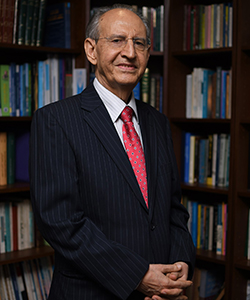
Mohammad Hashim Kamali
Mohammad Hashim Kamali, Founding CEO of IAIS Malaysia, graduated from Kabul University, and then earned a PhD in Islamic and Middle Eastern Law at the University of London in 1976. He served as Professor of Islamic Law and Jurisprudence at the International Islamic University Malaysia (1985-2004), then Dean of the International Institute of Islamic Thought and Civilization (ISTAC) from 2004-2006. He was Asst. Professor at McGill University’s Institute of Islamic Studies; Visiting Professor at Capital University, Ohio; and the Wissenschaftskolleg, Berlin. He was a member of the Constitution Review Commission of Afghanistan (2003), and a UN shariah expert on the constitutions of Iraq, the Maldives and Somalia (2004-2005). He has published over 260 academic articles and 46 books. His works have been translated into foreign languages. He received the Isma’il al-Faruqi Award for Academic Excellence twice, in 1995 and 1997. He features in the book The 500 Most Influential Muslims in the World from 2009, to 2022). He received the King Abdullah II International Award 2010 in recognition of his intellectual contributions towards serving Islam and Muslims.
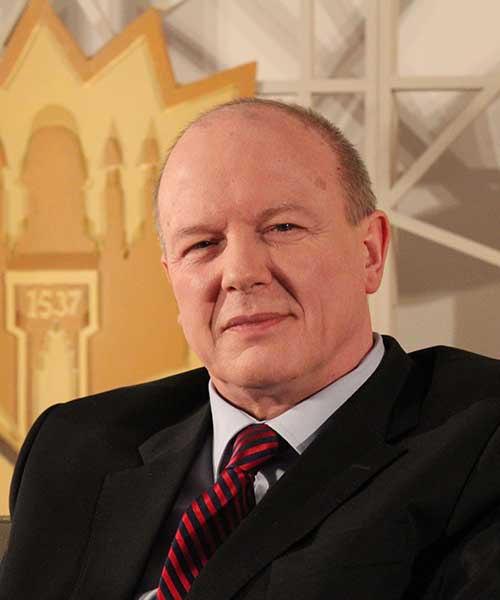
Enes Karic
Enes Karić (born 1958 in Travnik, Bosnia and Herzegovina) is a professor of Qur’anic and Islamic Studies at Faculty of Islamic Studies, University of Sarajevo. In 1994-1996 served as Minister of Education and Science in the Government of the Republic of Bosnia and Herzegovina. In 2003 – 2007 was elected to the position of the dean of the Faculty of Islamic Studies, Sarajevo. Delivered lectures at many universities (Ljubljana, Boston, Zagreb, Istanbul, Leiden, Yale university…) In Academic 2008-2009. was the Allianz guest professor of Islamic studies at the Ludwig Maximilian University in Munich. He published dozens of books on hermeneutics of the Qur’an, modern trends in Islam, Islam and Europe… His novels (Songs of Wild Birds, The Jewish Cemetery, Man by accident, Cherry colors, Godʼs slaves…) have been well received by the readers. His works have been translated into several languages, among them into Arabic, English, Slovenian, Albanian, Italian, German, Turkish.
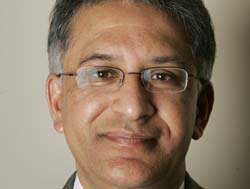
Karim Karim
Karim H. Karim is Chancellor’s Professor at Carleton University in Ottawa. He has served as Director of Carleton’s School of Journalism and Communication and Centre for the Study of Islam as well as of the Institute of Ismaili Studies in London, UK. Professor Karim has held visiting positions at Harvard, Simon Fraser and Aga Khan universities and has presented keynote lectures in several countries. His critically-acclaimed publications are cited widely and he won the inaugural Robinson Prize for his book, Islamic Peril: Media and Global Violence. Karim has also been honoured by the Government of Canada for facilitating co-operation between religious communities and has received the inaugural Institute of Ismaili Studies alumni award for leadership and achievement.
Maryam Kashani
Maryam Kashani is a filmmaker and associate professor in Gender and Women’s Studies and Asian American Studies at the University of Illinois at Urbana-Champaign and is an affiliate with Anthropology, Media and Cinema Studies, the Center for South Asian and Middle Eastern Studies, and the Unit for Criticism and Interpretive Theory. Her book Medina by the Bay: Scenes of Muslim Study and Survival (Duke University Press, 2023) is based on ethnographic research and filmmaking conducted with Muslim communities in the greater San Francisco Bay Area. Her films and video installations have been shown at film festivals, universities, and museums internationally and include things lovely and dangerous still (2003), Best in the West (2006), las callecitas y la cañada (2009), and Signs of Remarkable History (2016); she is currently working on two film duets with composer/musician Wadada Leo Smith that examine the ongoing relationships between the struggles for Black freedom, creative music, and spirituality. Kashani is also in the leadership collective of Believers Bail Out, a community-led effort to bailout Muslims in pretrial and immigration incarceration towards abolition.
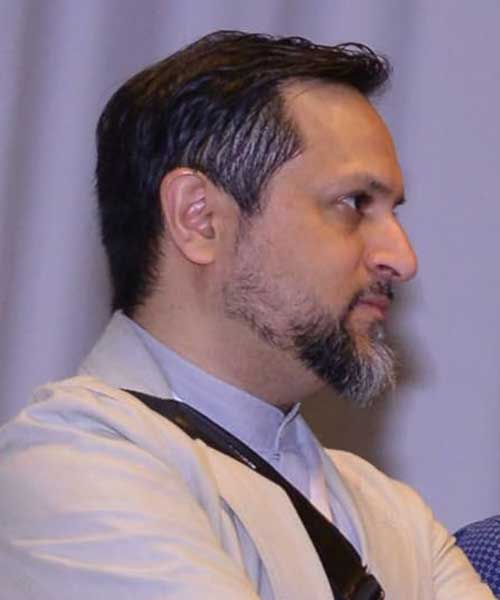
Atif Khalil
Atif Khalil is Associate Professor in the Department of History and Religion at the University of Lethbridge (Alberta, Canada) where he has been teaching for more than fifteen years. He is also the Administrative Director of the institution’s Catherine and Mushtaq Khan Endowment for the Study of Islam, created after 9/11 to advance the scholarly analysis of the faith in southern Alberta and promote better relations between the local largely immigrant Muslim population and the surrounding regional communities. His research interests lie primarily in the fields of Islamic mysticism and virtue ethics and secondarily in Islamic theology and philosophy, Orientalism and Islamophobia, comparative mysticism, and the medieval Judeo-Islamic tradition. He is the author of Repentance and the Return to God: Tawba in Early Sufism (Albany: State University of New York Press, 2018) and more than sixty academic articles and reviews. He is also co-editor of In Search of the Lost Heart (Albany: SUNY, 2012), Mysticism and Ethics in Islam (Beirut: American University of Beirut Press, 2022), and I of the Heart (Leiden: Brill, forthcoming). At present, he is writing a monograph on the theory and practice of dhikr (meditation, invocation, remembrance) in Islam and an introductory book on Sufism (Routledge, under contract).
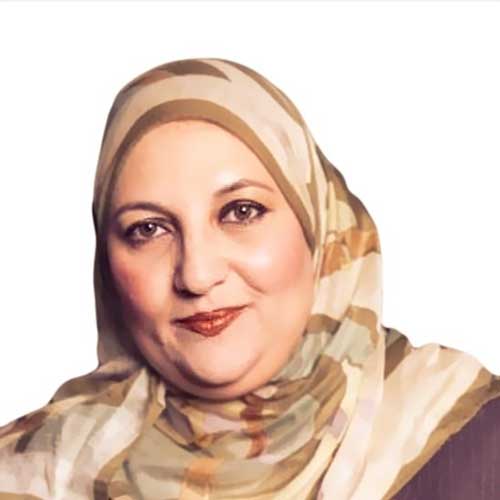
Sahar Khamis
Dr. Sahar Khamis is an advanced Associate Professor in the Department of Communication at the University of Maryland, College Park. She is an expert on Arab and Muslim media, and the former Head of the Mass Communication and Information Science Department in Qatar University. Dr. Khamis holds a Ph.D. in Mass Media and Cultural Studies from the University of Manchester in England. She is a former Mellon Islamic Studies Initiative Visiting Professor at the University of Chicago. She is the co-author of the books Islam Dot Com: Contemporary Islamic Discourses in Cyberspace (Palgrave Macmillan, 2009) and Egyptian Revolution 2.0:
Political Blogging, Civic Engagement and Citizen Journalism (Palgrave Macmillan, 2013), and the co-editor of the book Arab Women’s Activism and Socio-Political Transformation: Unfinished Gendered Revolutions (Palgrave Macmillan, 2018). Additionally, she authored and co-authored numerous book chapters, journal articles, and conference papers, regionally and internationally, in both English and Arabic. She is the recipient of a number of prestigious academic and professional awards, as well as a member of the editorial boards of several journals in the field of communication, in general, and the field of Arab and Muslim media, in particular. In addition to being an award-winning academic, Dr. Khamis is a media host and an international media commentator and analyst, a public speaker, and a former human rights commissioner in the Human Rights Commission in Montgomery County, Maryland. Dr. Khamis is the current President of AUSACE (Arab-US Association for Communication Educators) and the current Chair of the Spiritual Communication Division at NCA (National Communication Association).
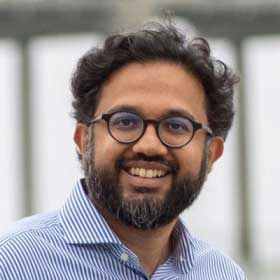
Sohaib Khan
Tuba Işik comparative Islamic studies with an interest in connections between religion, secularism, and economic life in Muslim societies. His research, teaching, and public scholarship lie at the intersection of Islamic legal studies, anthropology, postcolonial studies, and histories of capitalism in South Asia and the Middle East. Trained as an interdisciplinary historian and ethnographer, Prof. Khan received his Ph.D. (2020) from Columbia University’s Department of Middle Eastern, South Asian, and African Studies (MESAAS). Before joining Occidental College, Prof. Khan taught Islamic studies at Pomona College, Williams College, and the Lahore University of Management Sciences. He has also served as an Islamic Law and Civilization Fellow at Yale Law School and a Faculty Fellow at the Charles Warren Center for Studies in American History at Harvard University.
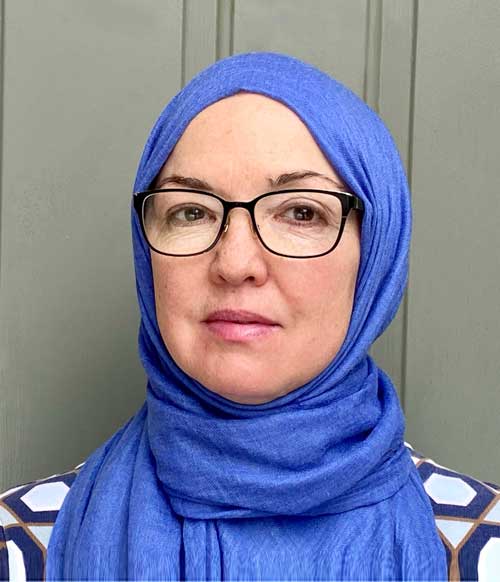
Ingrid Mattson
Dr. Ingrid Mattson, PhD (U. Chicago) is the London & Windsor Chair of Islamic Studies at Huron University College at Western University in London, Canada. Dr. Mattson‘s writings focus on Islamic Ethics, Qur’an interpretation, and interfaith relations. Dr. Mattson’s current research, the Hurma Project, is a long-term research and educational initiative founded in 2018 to prevent and respond to violations of trust and spiritual abuse in Muslim spaces. Previously, Dr. Mattson was Professor of Islamic Studies at Hartford Seminary (CT) where she founded the first accredited program for Muslim Chaplains in North America. From 2001-2010 Dr. Mattson served as Vice-President, then President, of the Islamic Society of North America (USA). In that position she established the Office of Interfaith and Community Engagement in Washington DC, facilitating new partnerships with other faith-based and civic organizations.

Younus Mirza
Dr. Younus Y. Mirza is a Visiting Researcher at Georgetown University and the Founding Director of Global Virtual Learning at Shenandoah University. He defended his dissertation in Arabic and Islamic Studies from Georgetown University and has taught at Millsaps and Allegheny Colleges. His current research focuses on the relationship between the Bible and the Qur’an and the shared stories between them. He is a co-author of the book The Bible and the Qur’an: Biblical Figures in the Islamic Tradition and has published in various journals such as the Journal of the American Academy of Religion (JAAR), the Journal of Qur’anic Studies (JQS) and Islam Christian-Muslim Relations (ICMR). In his teaching, he has been profiled by Interfaith America and has won a teaching award for his First Year Seminar course. He regularly teaches classes on the Qur’an, Biblical and Qur’anic Prophets, Marriage and Sexuality in Islam and Islam and Other Religions.
Umar Moghul
Umar Moghul is an attorney at the law firm of Roberts Moghul & Partners LLP and Trustee at Gateway Global. He works at the intersection of Shari’ah, wealth and social impact, advising on corporate and financial matters as well as waqf, zakat and other philanthropic initiatives. He is also adjunct faculty at University of Connecticut School of Law and Michigan State Law School, where he teaches courses in Islamic business ethics and law as well as halal food. He is author of A Socially Responsible Islamic Finance: Character and the Common Good (Palgrave-Macmillan, 2017), exploring the intersections between Islamic spirituality (tasawwuf), social and environmental impact, and business and trade.
Abdoulaye Ndiaye
Abdoulaye Ndiaye is Assistant Professor of Economics at the Leonard N. Stern School of Business at New York University. Prior to joining NYU Stern in July 2019, Professor Ndiaye was a Research Economist at the Federal Reserve Bank of Chicago. His research focuses on macroeconomics and public finance. Professor Ndiaye received a PhD in Economics from Northwestern University and a BS and MS in Economics and Finance from École Polytechnique in Paris. He has been a Visiting Scholar at the United Nations, Harvard University, and Princeton University.
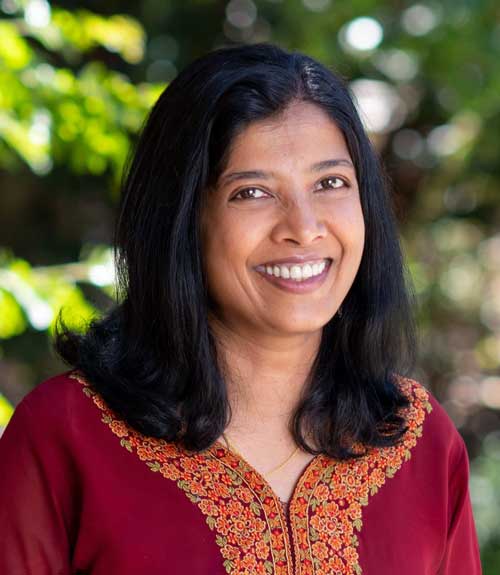
Asma Sayeed
Asma Sayeed is Associate Professor in the Department of Near Eastern Languages and Cultures and Co-Director of the Islamic Studies program at UCLA. Her primary research interests are in early and classical Muslim social history, the history of Muslim education, the intersections of law and social history, and women and gender studies. Her first book, Women and the Transmission of Religious Knowledge in Islam (Cambridge University Press, 2013) analyzes Muslim women’s transmission of ḥadīth from the rise of Islam to the early Ottoman period. She has published on topics related to Muslim women and their religious participation in early and classical Islam and on Islamic education. Her current book project is on contemporary Islamic higher education and focuses on Morocco.
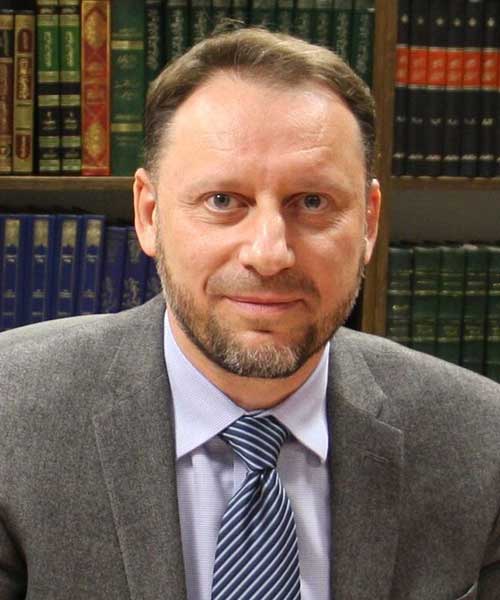
Ermin Sinanovic
Ermin Sinanović is the executive director of the Center for Islam in the Contemporary World (CICW) at Shenandoah University, where he is also a Scholar in Residence. Before joining CICW, he was the director of research and academic programs at the International Institute of Islamic Thought (IIIT). Prior to that, he taught in the Department of Political Science at the United States Naval Academy in Annapolis, Maryland. He studied for an MA and a PhD in Political Science at the Maxwell School of Syracuse University. He obtained a BA in Qur'an and Sunnah Studies and an MA in Islamic Civilization from the International Islamic University Malaysia. His research interests include transnational Islamic revival, Islamist activism, politics of Southeast Asia, contemporary Islamic thought, and institutionalization of Islam in the Balkans and Southeast Asia. He speaks Bosnian, English, Arabic, and Malay.
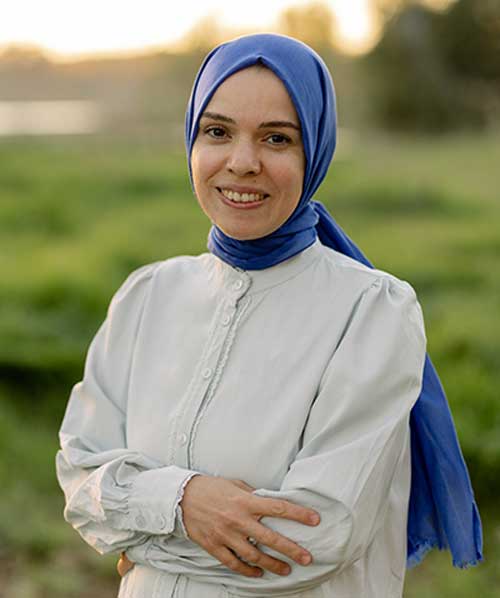
Esra Tunc
Esra Tunc, Assistant Professor at San Diego State University, is an ethnographer of religion and racial capitalism, and her work interrogates contemporary Islamic and ethical financial technologies, while exploring alternative socialities based on care and liberating solidarity. She is a former postdoctoral research associate at the John C. Danforth Center on Religion and Politics at Washington University in St. Louis. She earned her Ph.D. from University of California, Santa Barbara in 2022 and her M.A. from New York University in 2017, both in religious studies. Her book project, “Unjust Capital: Muslim Investing in the United States,” examines the innovation of financial capitalism among Muslim communities in the United States. Bringing religion and capital into conversation with feminist critiques of capitalism and Black radical traditions, her project aims to contribute to not only scholarly work at the intersection of religion, capital, justice, and technology but also the search to imagine and implement alternative socialities amidst widely criticized products and systems within and beyond Muslim communities.
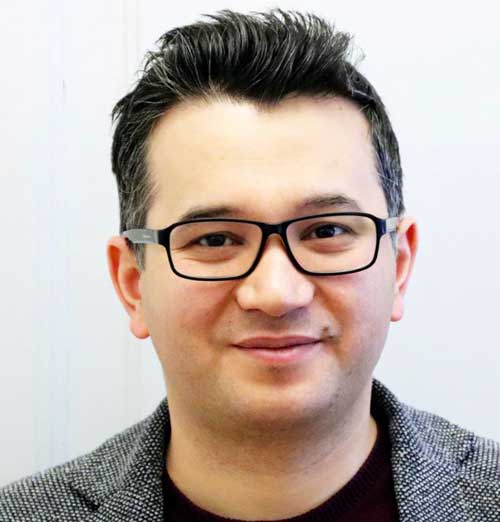
Rustam Urinboyev
Rustam Urinboyev is an Associate Professor in the Department of Sociology of Law. He is an interdisciplinary socio-legal scholar and studies diverse topics, such as corruption and informality in Central Asia, socio-legal approaches to migration, religious and ethnic identities in Russian prisons, Islamic public administration, law and society, migration and shadow economy in Russia and Turkiye. He is the author of the book Migration and Hybrid Political Regimes: Navigating the Legal Landscape in Russia (2020), published by the University of California Press.
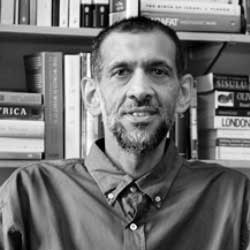
Goolam Vahed
Goolam Vahed is an Associate Professor in the Discipline of History, Society & Social Change at the Howard College Campus of the University of KwaZulu-Natal. He completed his undergraduate studies at the University of Durban-Westville and received his Ph.D from Indiana University, Bloomington. His interests and research focus on such themes as race, class, gender, identity, culture and historical biography mainly among Indians / Muslims in South Africa, as well as the role of sport and culture in South African society.
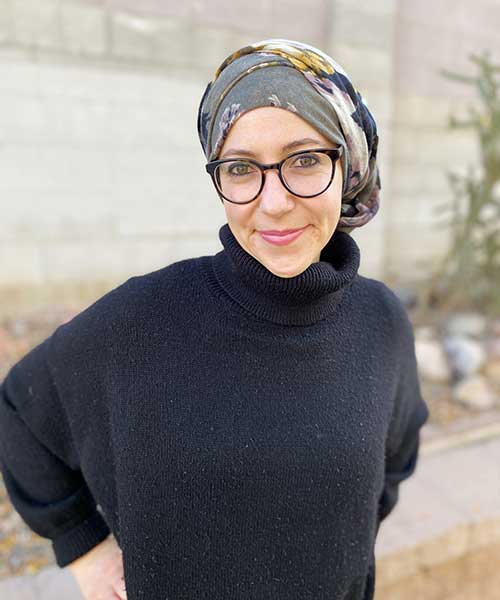
Fatima Van Hattum
Fatima van Hattum has a PhD in Educational Thought and Sociocultural Studies and works as the Senior Director of Research and Strategy at New Mexico’s statewide women’s foundation. Her academic scholarship focuses on Muslim cultural studies, public pedagogy, and visual discourse using feminist and critical race frameworks. Her current project is an oral history documenting the Dar al Islam Muslim community in Abiquiú, New Mexico. Fatima is also a published poet and occasional satirical cartoonist.

